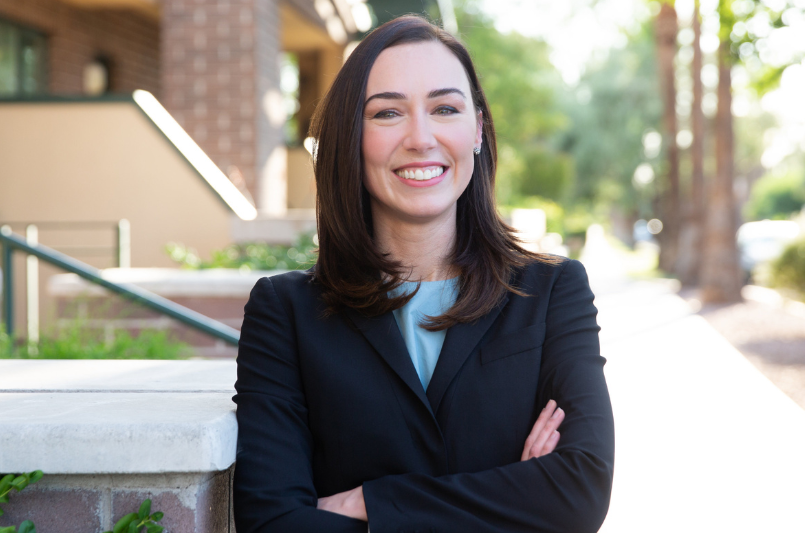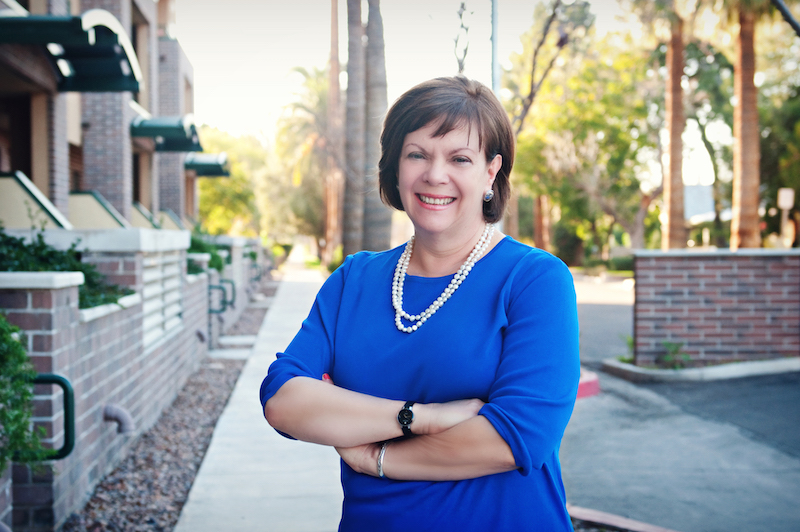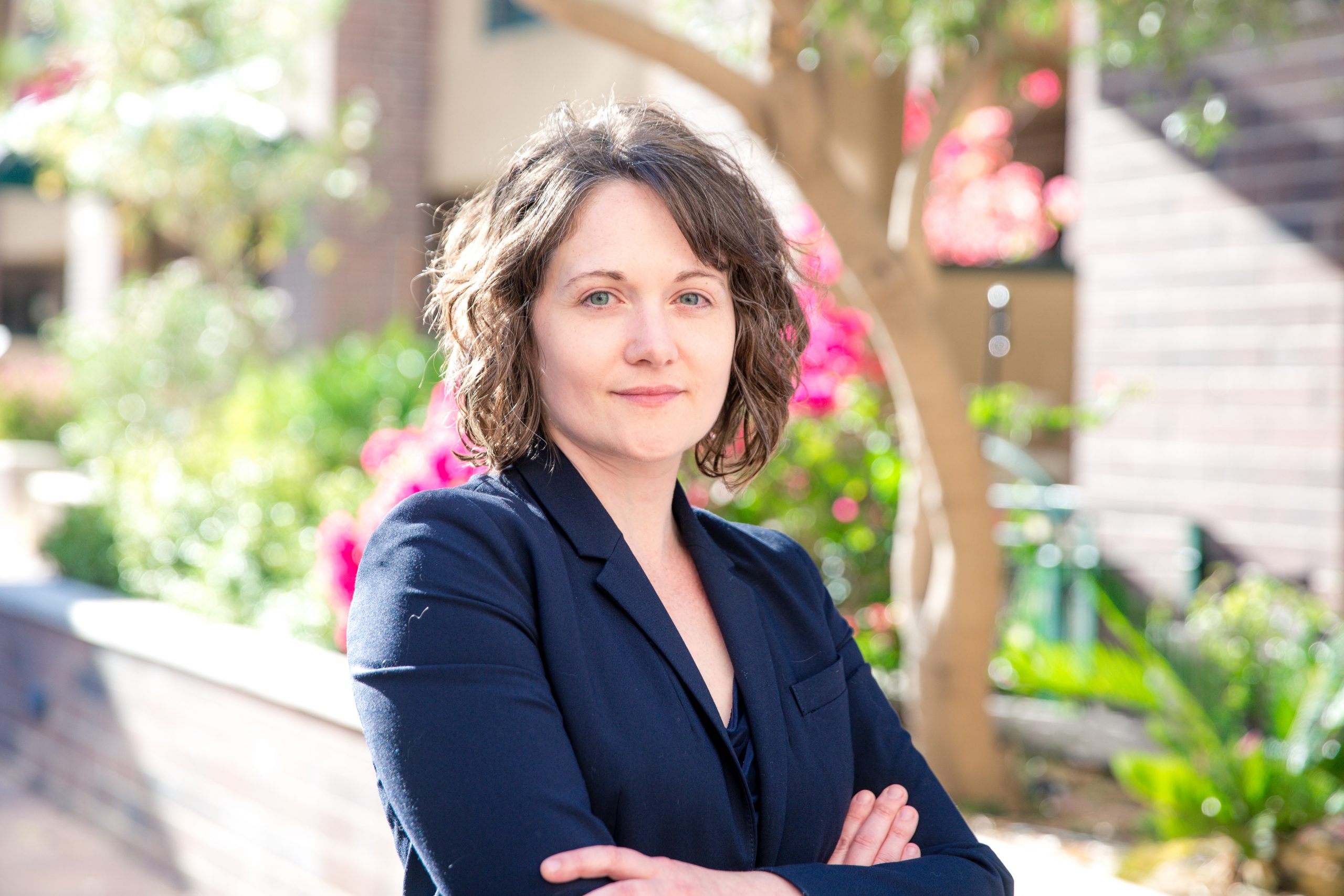October is Domestic Violence Awareness month. In recognition of this important topic, the State Bar of Arizona hosted a continuing education program for its members to take a deeper look at domestic violence law across multiple practice areas in Arizona. As one of the panelists for the program, Coppersmith Brockelman’s Jill Chasson shared her expertise with respect to ways in which domestic violence can raise legal issues in the workplace. Jill’s presentation helped educate seminar attendees on injunctions against workplace harassment, employers’ obligations to provide a safe workplace, state and federal laws that can provide leave rights to domestic violence victims, and the impact that domestic violence can have on eligibility for unemployment benefits. Other panelists reviewed rules and procedures regarding protective order hearings and firearms...
Read MoreRead MoreMarki Stewart’s longtime commitment to helping unaccompanied immigrant children find safety and security in the U.S. earned her recognition as the Florence Projects’ Children’s Program Pro Bono Attorney of the Year. Formally the Florence Immigrant & Refugee Rights Project, the Florence Project provides free legal services, social services, and advocacy to immigrants facing detention and potential deportation. Volunteering with the organization has been Marki’s personal passion project for 15 years. Specifically, she lends her time and talent to providing pro bono representation, guidance, and support to children under threat of deportation. Her work has made a lifechanging impact that empowers vulnerable individuals as they navigate challenging circumstances with hope and resilience. Pro Bono Managing Attorney for the Florence Immigrant & Refugee Rights Project’s Children's Program Lizmarie Mena-Feliciano...
Read MoreRead MoreWhen key managerial employees leave a business and additional staff members follow, many employers suspect the departed leadership improperly solicited the others and take hasty legal action — which often backfires. Attorney Jill Chasson authored an article for HR Laws and Arizona Employment Law Letter detailing how groundless employer claims can lead to a host of bad-faith sanctions. She highlighted Powers Steel & Wire Products (PSW) v. William Powers, a case that was before the Arizona Court of Appeals, which is likely to have a six-figure impact on the employer’s bottom line as a result of such sanctions. Jill emphasized that when pursuing litigation, an employer must be able to produce evidence of improper conduct and damages from that conduct. Failure to do so can lead...
Read MoreRead MoreThe federal government, state legislatures, and health care organizations are all closely focused on the scope of required and permitted health care for transgender patients. Health Care Law partner Karen Owens explored the rules around transgender patient care and how organizations can be more welcoming for transgender individuals at AAPC and the American Health Lawyers Association’s 2023 Collaborative Compliance Conference. Presenting with Trent Stechshulte, VP and general counsel of I Am Boundless, Inc., Karen reviewed Section 1557 of the Affordable Care Act, the first federal antidiscrimination law directly addressing health care, and the series of regulatory efforts and court decisions since 2016 interpreting Section 1557. Karen also examined pending state legislation, some increasing protections for transgender patients, and others limiting access to medically necessary health...
Read MoreRead MoreThough the proposed modifications to HIPAA have been delayed until 2024, it’s crucial for covered entities to be well prepared before changes become official. To provide expert insights on changes designed to boost transparency and collaboration in the healthcare sector, Healthcare Risk Management turned to Katherine Hyde to comment on the upcoming changes. In the article, “Plan Now for Eventual HIPAA Changes,” Katherine explained what important modifications to expect— the final rule will likely expand support for care coordination and case management, and it’s expected to strengthen individuals’ right of access to PHI. Some other changes would reduce the burden on covered entities as well. When the Department of Health and Human Services finalizes the proposed modifications, covered entities will need to review their compliance policies...
Read MoreRead MoreAfter being named one of Managed Healthcare Executive’s “Emerging Leaders in Healthcare,” Mel Soliz was featured in a profile article that showcased her career journey, passion for healthcare law, and thoughts on current trends. Mel's regulatory practice focuses on compliance with data privacy, access and interoperability laws (such as the Information Blocking Rule and CMS interoperability mandates), health IT/technology service contracting, health information networks/exchange (including TEFCA), behavioral health/substance use disorder law issues, data breaches and OCR investigations, as well as clinical research compliance and contracting. She regularly speaks in local and national forums on these topics and has been active in state and federal policy making on data privacy and HIE issues. She is the President of the Arizona Society of Healthcare Attorneys. Read Mel’s full profile...
Read MoreRead More



